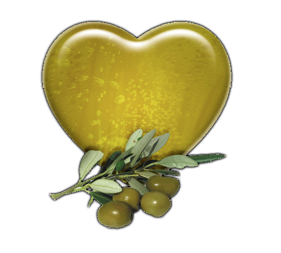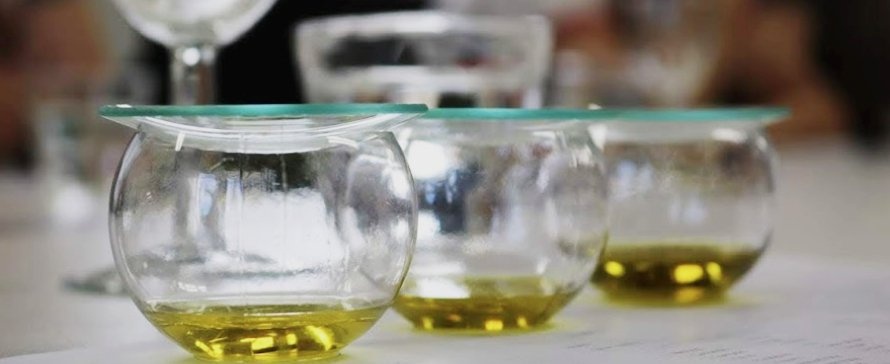Listen to this article
The health benefits of consuming Extra Virgin Olive Oil (EVOO) are well known, but what are the scientific foundations that support this belief? In this post we will delve into the knowledge of the composition of EVOO and the scientific studies that support its multiple benefits.
EVOO Chemical composition
Chemically we can differentiate two parts of the EVOO: the saponifiable fraction and the unsaponifiable.
- The saponifiable fraction: triglycerides (esters of fatty acids and glycerin) and free fatty acids.The most abundant fatty acids are: monounsaturated oleic acid (55-83%), palmitic acid (7.5-20%) and linoleic acid ( 3.5-21%) This is the part that gives us energy.
- The unsaponifiable fraction, consisting mainly of terpenes and steroidal compounds. This part represents a percentage less than or equal to 1.5% of its total composition. However, this part is of great biological importance.In this part, there are carotenes (pro vitamin A), alpha-tocopherol (vitamin E), beta-sitosterol, phenolic compounds and volatile compounds (alcohols, ketones , esters). This is the part that provides us with fat-soluble vitamins and antioxidants.
Observing this composition, we can deduce that the advantages are on the one hand the presence of unsaturated fatty acids, an advantage shared with other vegetable oils, as opposed to saturated fats. And on the other hand, for the compounds present in the unsaponifiable fraction, and these are indeed unique in the EVOO, since most of them are lost in the refinement process, a process that is carried out obtaining the rest of vegetable oils.

Oleocanthal
Oleocanthal is an ester of tyrosol, related to oleuropein, another compound also found in olive oil.
"A Naturally Occurring Anti-Inflammatory
Agent in Virgin Olive Oil"
Oleocanthal has been discovered in recent research to possess anti-inflammatory and antioxidant properties. The anti-inflammatory effects are the same as those of classic NSAIDs (Non-Steroidal Anti-inflammatory Drugs) such as ibuprofen by virtue of suppressing, although not selectively, the enzyme cyclooxygenase (COX). It has been suggested that long-term consumption of small amounts of oleocanthal from olive oil may be partly responsible for the low incidence of heart disease associated with the diet of the inhabitants of the Mediterranean.
In the study carried out by a team of scientists from Rutgers University in New Jersey (USA) and Hunter College in New York (USA) collected by the journal Molecular and Cellular Oncology, the oleocanthal is capable of killing cancer cells without damaging healthy human cells. Experts have discovered that oleocanthal enzymes themselves cause cancer cell death by rupturing the vesicles that store residues. And the process is extremely fast: between 30 minutes and an hour.
PREDIMED study
The PREDIMED study (PREVENTION with Mediterranean Diet) is a nutritional clinical trial for the primary prevention of cardiovascular diseases (CVD). It was carried out in a total of 7447 men (between 55 and 80 years old) and women (between 60 and 80 years old) with a high risk of having a CVD, divided into three groups: Mediterranean diet + EVOO; Mediterranean diet + mix of nuts and a low-fat diet.
This study has provided us with the best scientific evidence to be able to affirm that the Mediterranean diet provides very important advantages to human health.
With a follow-up of 4.8 years, the main conclusions drawn from the data obtained in the Mediterranean diet + EVOO group with respect to the control group were:
- The risk of developing a primary cardiovascular event or stroke it was 30% lower.
- The risk of having Type 2 Diabetes was 40% lower.
- Decrease in total cholesterol, plasma glucose and blood pressure.
- Analyzing mental abilities such as memory, spatial orientation, and calculation ability in this group, less age-related cognitive decline was observed.
- Women in this group had a 68% lower risk of developing breast cancer.
Predimed Plus Study
The Predimed Plus project could be defined as a continuation of the Predimed study, and was designed to assess the effectiveness and safety of a multifactorial intervention by adding physical exercise, calorie reduction and lifestyle change to cardiovascular risk in the Mediterranean diet.
The study has 6,800 volunteers, men and women between 55 and 70 years old, who were overweight and obese at the time of being recruited, with risk factors such as high blood pressure and glucose, good cholesterol levels and altered triglycerides.
The researchers want to demonstrate that weight loss due to the low calorie Mediterranean diet combined with physical exercise reduces the probability of suffering from heart disease and other chronic ailments. The results will be published in the present 2020.
Conclusions
After all the above, it can be affirmed that EVOO offers multiple health benefits: for its content in unsaturated fatty acids, for fat-soluble vitamins, for antioxidants and for other elements, such as oleocanthal present in its composition, and there is still much to investigate about them. We can say that it is the healthiest fat, and the higher the quality the healthier is the EVOO.
.png)



